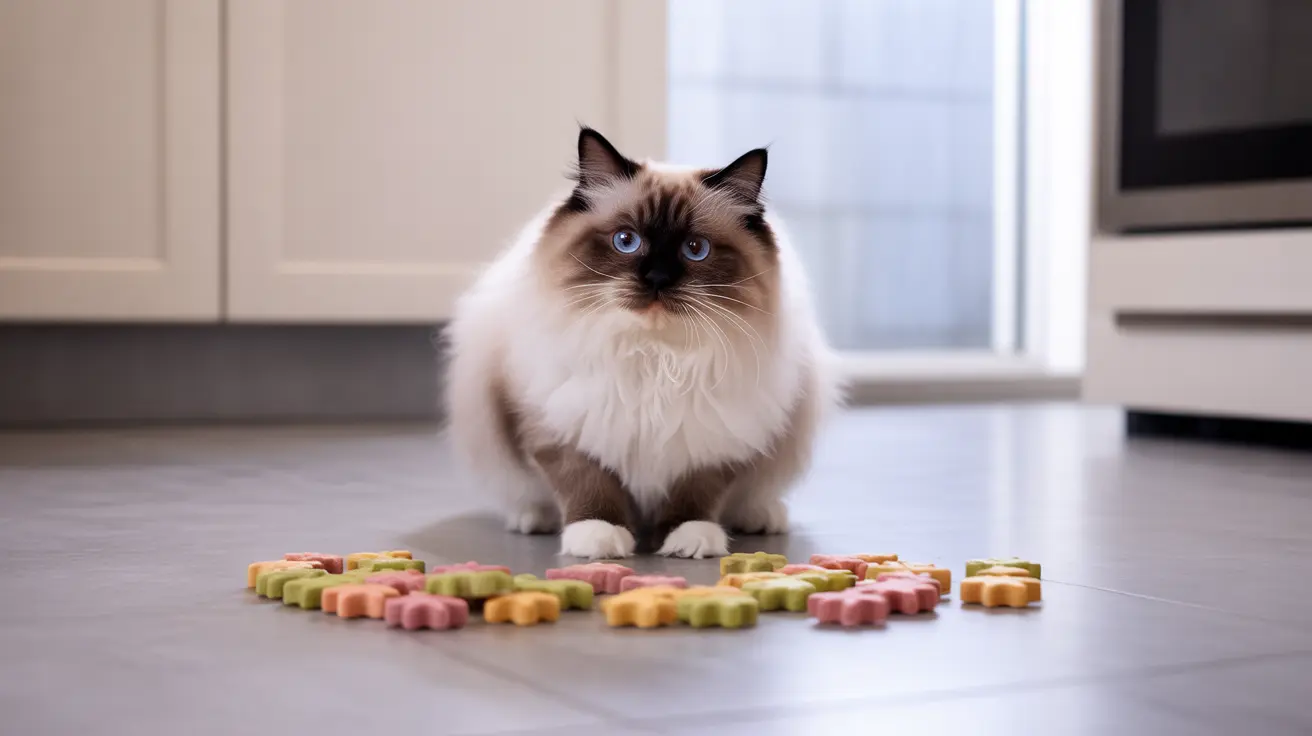Common Causes of Treat-Only Eating Behavior
Medical Issues
Dental problems, gastrointestinal disorders, and kidney disease are common medical reasons why cats may favor treats over regular food. Dental pain can make chewing regular kibble uncomfortable, while soft treats might be easier to eat. If your cat suddenly starts refusing their regular food but eagerly accepts treats, it's essential to consider these potential health concerns.
Behavioral and Environmental Factors
Cats are sensitive creatures, and changes in their environment can significantly impact their eating habits. New pets, moving furniture, or changes in routine can cause stress-related food aversion. Sometimes, cats develop learned behaviors when owners inadvertently reinforce treat-seeking by offering treats when regular food is refused.
The Dangers of a Treat-Only Diet
Commercial cat treats are designed to be supplementary, not a primary food source. They lack essential nutrients your cat needs for optimal health. A treat-only diet can lead to:
- Nutritional deficiencies
- Weight gain or obesity
- Dental problems
- Digestive issues
- Long-term health complications
How to Get Your Cat Back to Regular Food
Gradual Transition Strategy
Start by mixing a small amount of regular food with crushed treats, gradually increasing the proportion of regular food while decreasing treats. This method helps your cat associate their regular food with the flavors they enjoy.
Environmental Modifications
Create a stress-free feeding environment by:
- Establishing a consistent feeding schedule
- Providing a quiet, peaceful eating area
- Using shallow, whisker-friendly bowls
- Ensuring fresh water is always available
Veterinary Intervention
If your cat persistently refuses regular food, schedule a veterinary examination to rule out underlying health issues. Early intervention can prevent more serious complications and help establish an effective treatment plan.
Preventing Future Treat Dependency
To maintain healthy eating habits:
- Limit treats to no more than 10% of daily caloric intake
- Use treats as rewards for specific behaviors, not as meal replacements
- Rotate different types of healthy, nutritious foods
- Monitor your cat's weight and eating patterns regularly
Frequently Asked Questions
Why is my cat only eating treats and refusing their regular food?
This behavior can stem from medical issues like dental problems, learned behaviors from overfeeding treats, or stress-related factors. Any sudden change in eating habits should be evaluated by a veterinarian.
Can stress or environmental changes cause a cat to eat only treats?
Yes, cats are sensitive to environmental changes, and stress can lead to food aversion. Changes in routine, new pets, or household modifications can cause cats to seek comfort in familiar treats while avoiding regular food.
What health problems might cause a cat to avoid normal food but eat treats?
Common health issues include dental disease, gastrointestinal problems, kidney disease, and respiratory infections. These conditions can make regular food difficult or uncomfortable to eat while soft, aromatic treats remain appealing.
How can I encourage my cat to eat their regular food instead of just treats?
Gradually mix regular food with treats, establish consistent feeding schedules, ensure fresh food and water, and create a calm eating environment. Consider warming food slightly to enhance aroma and appeal.
When should I take my cat to the vet if they're eating only treats and not their meals?
Seek veterinary care if your cat refuses regular food for more than 24 hours, shows signs of weight loss, lethargy, or other concerning symptoms. Prompt medical attention can prevent serious complications like hepatic lipidosis.
Conclusion
While it's concerning when your cat only wants to eat treats, understanding the underlying causes and taking appropriate action can help restore healthy eating habits. Remember that treats should complement, not replace, a balanced diet. If your cat's selective eating persists, don't hesitate to consult with your veterinarian for professional guidance and support.






